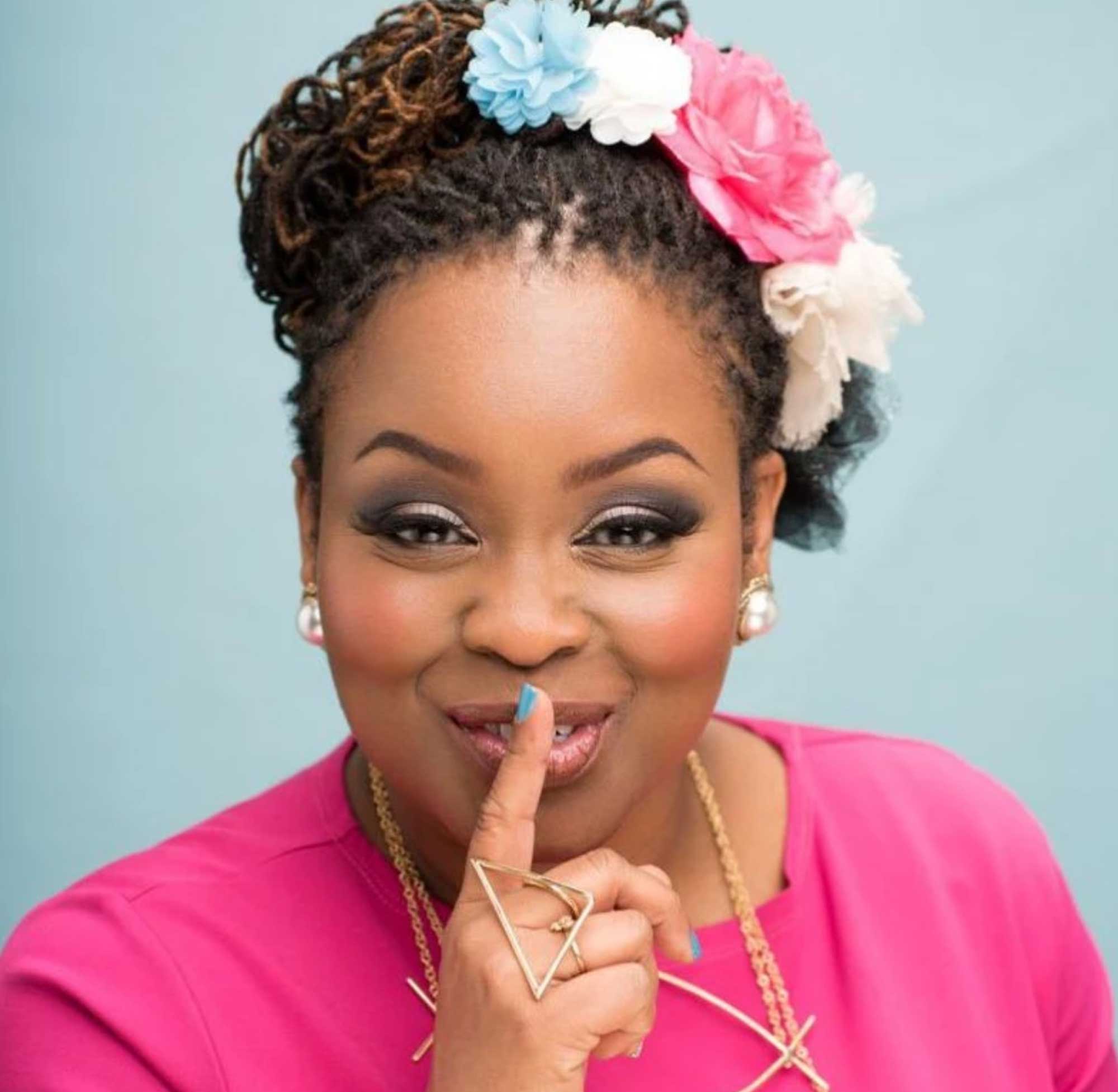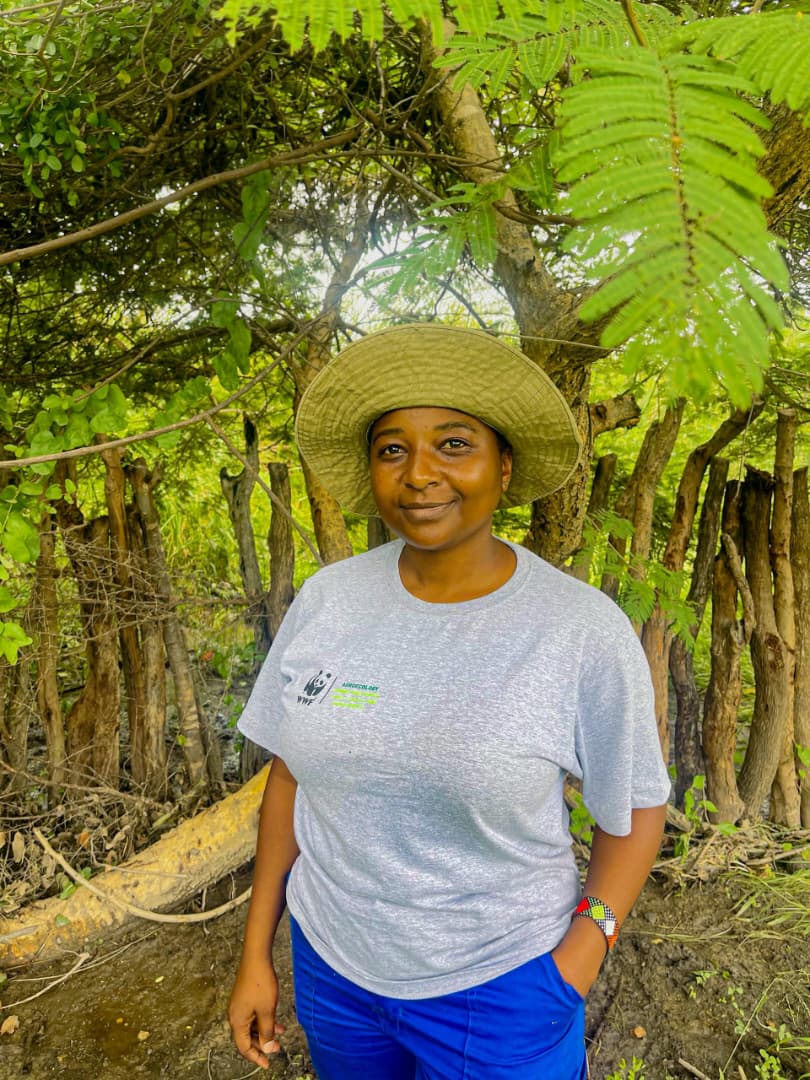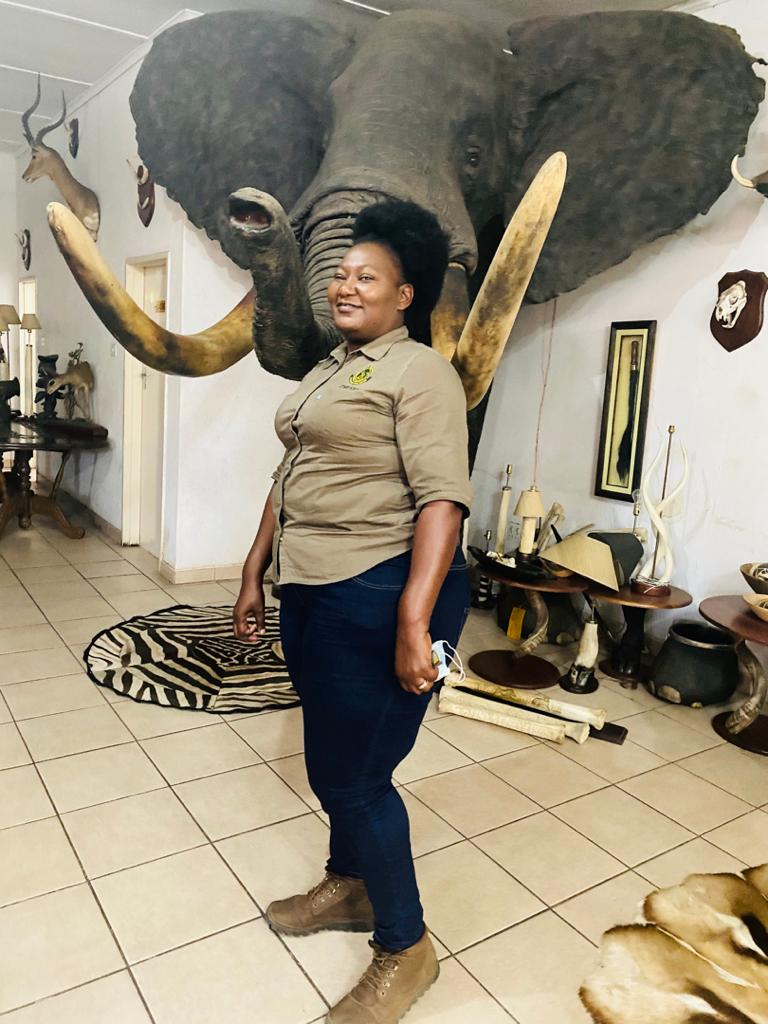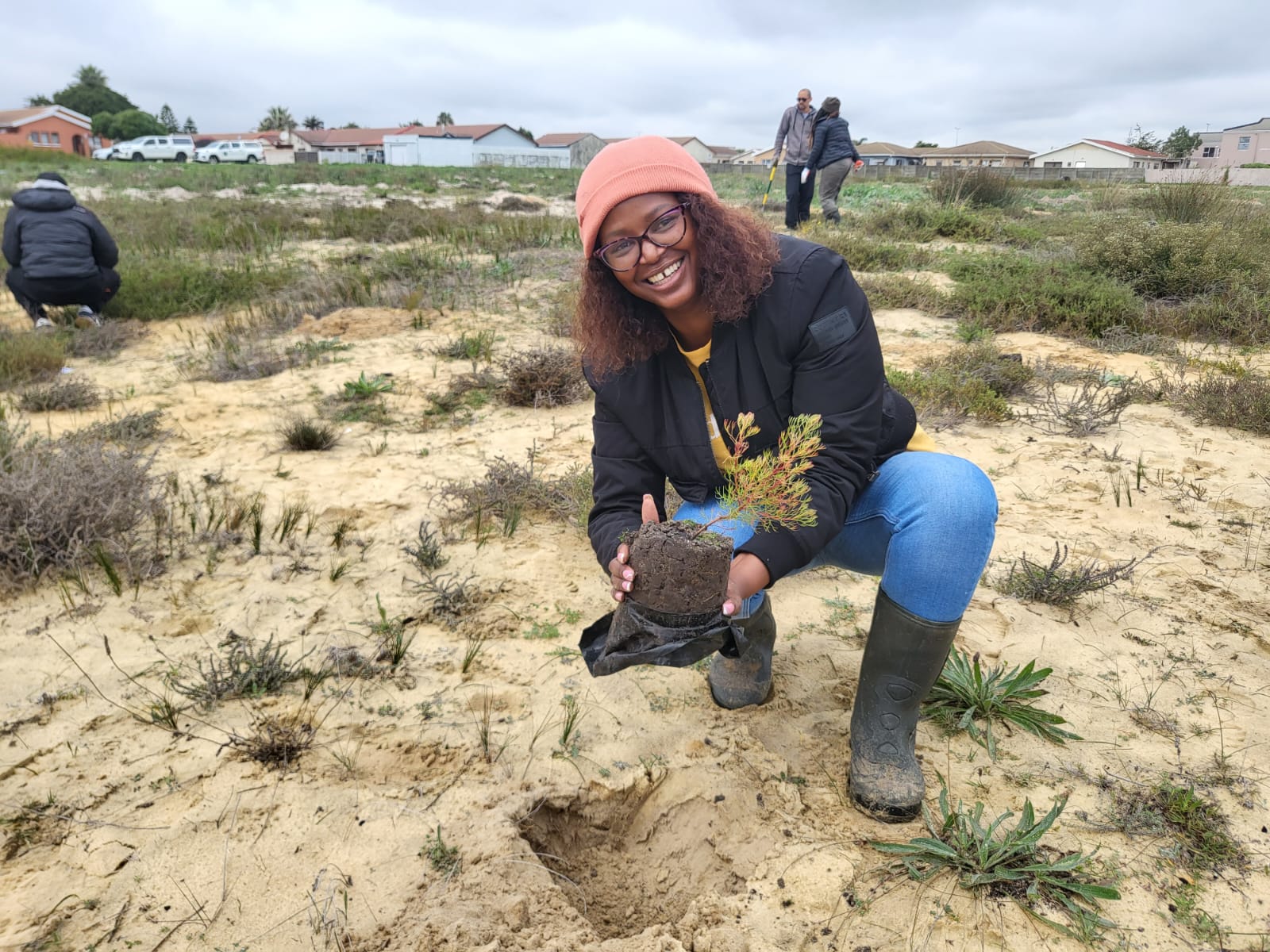There are things if you don’t get your act together and do, somebody else will do and then there are other things that we need to be able to count on you, as a human being to get done.
June Gachui has taken the Kenyan entertainment scene by storm. Whether she is giving legal advice to creatives, performing on stage or producing a show, the 40-year-old lawyer, producer, musician, MC, moderator and improv comedian has made it a point to create meaningful impact from every talent and skill that she possesses.
She talks to Damaris Agweyu about her journey to building an outstanding career and ultimately empowering others to live out their creative passions.

June, are you water or fire?
What do you mean?
Water people tend to be intuitive and reflective whereas fire people are more expressive and edgy.
I’d say both. My artistic persona is definitely fire at the point of performance but when I’m thinking about the creative process or planning then I’m a lot more water.
You’ve taken diverse interests, merged them and created an incredible career.
My ability to always be honest about who I am and what I want has helped a lot. I love and need the intellectual stimulation from my legal practice and I’ve been performing on stage for close to 24 years now. I’ve never had to pick one over the other.
Let’s start with your journey in the creative arts.
It started when I was very young. I remember being in school plays, choirs and musicals at the age of 8 or 9. My dad was posted to Paris for work so we got the opportunity to live out of Kenya quite early; this led us to interact with all sorts of people and being part of the international community, I learnt a lot about different cultural practices through dance and music. I would volunteer to be part of anything and everything that was performance-related. By the time we moved back to Kenya, I knew I needed to pursue my creative passions for my balance.
With the support of your parents?
Yes, on condition that I did well in school. At around the age of 13, my mum agreed to send me to a school to learn music so that I could appreciate how difficult it was and then give up. I don’t think I was a great singer but I loved it. So every Saturday, she would drop my sister and I off for an hour at the music school. After a month, my teacher asked if I wanted to take music seriously and I was like, "who does that?" Because this is what society had taught us and this was still the early 90s. And my mum like most prudent parents was probably like, "this wasn’t the plan". I did my singing exams till grade 5 then it became really hectic with all my school work so I took a break.
Mum was right?
Maybe at that time. My love for the performing arts never waned. After I went to St. Mary’s school which was famous for its leaning towards arts and sports I got very involved in the extra-curricular activities; I think the performing arts helps you develop your interpersonal skills because you interact with so many different people. So I became a leader by default. I was the deputy Head Girl at GreenAcres and Head Girl at St Mary’s. I then went to University and continued to perform, together with some friends; we started recording very basic music.
What were you studying?
Law with French, at the London School of Economics. And when I came back home, I carried on with my creative pursuits while studying at the Kenya School of Law. I signed up for a performance at Phoenix Theatre with Mumbi Kaigwa and Keith Pearson- it didn’t work out but then Ian Mbugua spotted me and said he would be interested in working with me. In the end, I got a 15-minute role at the back end of act 2. I loved it! From that point on, I was absolutely sure that I wanted to incorporate both my interest in the performing arts and my love for the law.
Not an easy mix to juggle I’d imagine.
No, but I would tell bosses from the very beginning that my creative passions were a huge part of my life. I remember the day Total called me to interview for a position in their legal department, I was on set, filming a movie called Project Daddy. I told them I couldn’t make it and they were like, "do you want this job or not?" I said yes and they were like, "then what are you doing that’s more important?" I told them I was filming and it was not that it was more important, I had made a commitment to be part of the movie- and they were like, "you’re in a movie! I said yes, and asked if they could reconvene the next day when I’d be done.
That was quite the gamble.
It was but I had to be honest from the very beginning. If I had dumped the movie for the interview, then they should have been worried because it would mean I could easily dump them for something else- if I got the job.
Which you did?
Yes. And because of my interactions with the creative world, I was the one who was called upon to be part of the editorial team of the company magazine managing the entertainment page, during team buildings I’d coordinate the karaoke and when the company sponsored TV show called FrancoFun, I co-hosted it with Larry Asego, so it all worked out perfectly.
They got two for the price of one.
They did. And now that they got it, I was able to carve out time for my gigs and my colleagues were gracious enough to come for shows when they could. I’d go to work in the morning then leave for rehearsals or whatever play I was doing after work was officially over and then most days I’d be back in the office in the evenings to work till midnight.
Your boss allowed you to work on your own schedule?
There were just two of us in the legal department and my boss was very understanding. I actually got a lot done in the evenings and would leave everything in his in-tray to handle as soon as he came in the next morning, He let me do my job and I delivered without having to answer questions like, were you here by 8.01? In fact, I worked more hours than I would have with a straight 8 to 5. But more importantly, I never once felt like I had to choose between my job and my other job.
What is it about legal work that you love?
I like helping people find solutions either when things are really bad or better still, preventing them from going bad in the first place- that is my approach to law and life as well. A lot of the productions I’m currently putting on are in direct response to a problem I was told or had heard about.
Meaning?
I used to do a lot of my music gigs in restaurants and clubs but when my audience got to a certain age, they were like, "We like watching you perform but we can’t keep coming to K1 every Tuesday to Saturday night with all the university kids". And that is how, 6 years ago, the conversation about ‘Motown in Nairobi’ came up- as an entertainment solution for the discerning, mature crowd. It’s true that you’re not going to find many people in their mid-30s to 60’s at the club. I came up with the idea of producing themed shows where they could come, have a nice meal, enjoy a grown-up beverage, bring their spouse or partner and enjoy themselves.
I take it you are no longer working for Total?
Not for a while now. In 2007, I quit my job- the reason being a lot of creatives I worked with would find out I was a lawyer and ask me to look at their contracts- because Law is pretty standard- a good contract is a good contract, regardless of the subject matter. As IP practitioners, there are certain basic things we look for. So within 10 minutes, I would go through a contract and identify problem areas rather quickly, but then after some time I was like, "Wait a minute, nobody has paid me for all this". But payment notwithstanding, it established that there was a vacuum.
I asked myself, Is it that there is nobody who can do this for you? Or is that it costs too much? Or is it that you don’t even think you need a lawyer and if you had not met me on this cast it wouldn’t have been an issue? Why did these guys not have a solution before they met me?
I started doing research on intellectual property and entertainment law - because a lot of the subject matter of these contracts was that- of course, there were IP practitioners around but they were working for really big firms and their hourly rate was prohibitive for a lot of the creative industry players. I got it because I was in it and I clearly had some X factor trust thing going on with artists because I am one of them and I just happen to be a lawyer. I wondered how to leverage this.
I started looking for schools that specifically taught entertainment law or IP or whatever this thing was- I didn’t really know but gave my notice at work and started getting involved in the field. Then, through my Rotary club, I met an entertainment and film lawyer from Australia, her name is Joan Peters- we exchanged cards and up until then, I had not known what I wanted to do looked like and Joan was the first person doing the thing I could see myself doing. I jokingly told her that I would love to see how what she does looks like. She went back to Australia and contacted me to ask when I was coming.
Just like that?
Just like that. I didn’t take it seriously; we didn’t really know each other so I didn’t do anything for 2 weeks, then she followed up with an invitation letter for me to use at the Australian Embassy during the visa application process and said there was a spare room at her house where I could crash. So I went, spent 6 weeks in Australia interning with her to understand among other things, all aspects of film making in terms of what that contracts look like and at the same time she managed to get me into copyright training courses for free- everything was aligned and this solidified to me that I should be doing this.
After Australia, I got accepted to the George Washington University of law school, did my masters, got 2 internships in New York then I came back home in 2010 and set up JGIP Consultants
Why Consultants and not Law Firm?
The name law sometimes scares people unnecessarily but if you go and have a chat with a consultant it’s a bit less daunting- we try and give you as much information as we can within the hourly rate and then you can engage us as advocates after that. But then I quickly understood that setting up a business and getting paying clients are two very different things!
People who knew me knew what I went to study but knowing what I studied and how it will help you are two different things, so I realized people didn’t even know they needed the service I was offering and wondered what I could do market my services- lawyers aren’t allowed to advertise here in Kenya.
I actively started looking for places where creatives gather to network, calling organisations like the actors guild and ICT authority to tell them I’m here and I can do little workshops for them, initially at no charge- if 20 people are in the room and even one calls me for work, then it is a good start. Joan would also come for the workshops and help me benchmark with the US, Australia and other territories who were a bit more advanced in this field. She was happy to share her templates and invaluable experience, generously.
Still free of charge?
Not anymore, I thought it was important to charge for the time and expertise because otherwise, people wouldn’t value this wealth of knowledge, they’d probably think, "it was a free workshop and she even gave us juice", then they’d just go back and keep doing the exact same thing they had been told not to do.
And now you’re something of an authority in this space.
You could say that. I’ve been invited to speak at lots of functions by different organisations both in legal practice and in creative industry practice; getting my masters degree was very helpful because then people believe I really know what I’m saying- before they were just like, "Aaaw, she’s so passionate" (laughs).
Tell me about your music.
I’d been doing cover versions for 2 decades and then people started asking me when I would start and performing my own music. I’d never really thought about doing that- I can tell other people’s stories and even in acting that’s what we do, you embody a character and play it, it’s the same approach to music but then I was greeted with my first challenge: Did I have anything to say? Because I’m not just going to write music for the sake of it. Such music feels very bubblegummy you know, repetitive choruses that don’t have any meaning. And most of the music that I would instinctively gravitate towards during my gigs was classical and timeless, even today a Marvin Gaye song would still make sense to a 19-year-old.
My second challenge was in performing, I always have my little niche of guys to perform to. I opened for Joe once and there were like 4,000 people at Bomas, I almost passed out but because my eyelashes were so big, I couldn’t see much so I survived that one (laughs). I like intimate spaces because I story tell when I sing or perform and anything more than 500 people is hard; on the other hand, I also struggle in studios because I feed off the energy of my audience; this recording thing was giving me panic attacks.
In 2013 I took the jump. I was introduced to a producer in the US. His name’s David Hunter. Within a day, I met him, was introduced to his family, we had dinner, some wine, I checked out his studio, he showed me his work, gave me a notebook and asked me to start writing. That day, we wrote and recorded my first song on the album.
Which song is that?
It’s called ‘Everything is Fine’. I’d been struggling for over 5 years to pen a song and none of what I had done came across as genuine- but this was the most natural thing, it was magic.
What created this magic?
I can’t tell you, maybe it was the wine we drank (laughs)…maybe because I wasn’t at home with all the distractions- anyway, I loved the entire process. I made about three other trips to New York over the next two years but work got crazy and I was low on cash so I invited David to Kenya, he agreed and we recorded some more stuff here. Then we thought about doing a master class on sound- because he studied sound engineering at Berkeley and was fully qualified. He agreed and within the 10 days he was here he made the decision that he was relocating to Kenya.
That was brave of him.
Well yes, there’s that but also, in the States, the market is completely saturated. Here, there is still so much potential and we could see this thing really growing. He’s now a huge part of all the productions that we do because now my mission is to raise our professional standards- we do this by accessing the knowledge and network that David has from his schooling and work experience so rather than having to send guys there, we train and grow a bigger pool of people here. We gelled on that point because for me, impact is everything.
Together, we launched my album and created an all-female band…because whenever I made a call for auditions, so many guys would come as instrumentalists and not one girl would show up- and I wondered why we were not building capacity for women in this field. I’m not going do this forever- it’s about bringing new people into the family and creating world-class productions. You know, most of the concerts that have happened over the past couple of years, the ones that everyone is still talking about, those guys flew their sound engineers in but they hired the gear here, that should tell you something – we have people who are able to buy the latest equipment here, but the talent to work it is missing. They have to fly in their own guys.
They don’t trust our guys?
They would ask pertinent questions…Where did they study? Which school in Kenya is has been offering sound engineering courses at the level of say Berkeley or SAE? Majority of our guys mostly just figure it out themselves- sometimes in the middle of a concert! I say this with love for this country and this is why I want to keep doing what I do and so…we MUST do better; we must refine the craft so people can pay for it and feel it was worth their while.
David’s sound workshops are aimed and sharing this information and helping to grow our own talent here at home, without necessarily flying out of the country and spending a lot of money. It is basic things like when setting up for a live show, what do you start with? How do you run a proper line check and sound check? When arranging a set for performance, which song should come first and why? There is actually a little science behind it but these are things we take for granted. After watching a professional production, you’ll be like, "That show was everything", and you won’t even know why, well yes, there is a why and that’s what we are doing now as a production company. I don’t know what other value to add. I can do my own thing, write songs, sing, perform in concerts and people will pay go home and it's great- but when I’m done and retiring what have I left behind?

June doing her thing on stage image courtesy Thandie Muriu
Will that be your legacy?
Yes, I feel like I was blessed with certain talents which I took for granted because, at the time, I didn’t know that it was special, I just liked doing these things, I very quickly I realized that there are a lot of people I will put on my stage who are better singers, better performers, better musicians than I could ever be and the thing I am excellent at doing is finding them, putting them on a stage and putting on shows they would never do it on their own because they are too busy, or scared or simply didn’t think they could actually be involved in such a production.
I benefited from the David Hunters and Eddie Greys of this world who didn’t need to do what they did for me, it helped me see that people in our industry are not as bad as we think, we can actually change the narrative and help each other by sharing our platforms. So I want to use the platform I have to give access to those who are coming up, have come up, but maybe struggling to see their potential in this particular space of live performance and production.
You don’t want to chase your music career?
Oh, I do and I am still singing. I’m booked every weekend between now and the end of the year, I’m writing new music which I will focus more on in January when it isn’t so busy, my music is on iTunes, Apple Music, Google Music, Mdundo and Mookh and the downloads so far are decent so yeah, I enjoy all aspects of music and make money from it. And that’s the thing with this industry, we are still looked at as people who failed in school and therefore had nothing else to do than be a creative.
It starts by taking ourselves seriously and doing what we do really well…it's not about trying to out-do one another, it's about doing our absolute best. We owe that to ourselves. We once did a show a Braeburn Theatre and the first call I got was from a foreigner in the audience who asked me if every single person on that stage was really from Kenya. I was like, ‘Yeah’- in his mind it was not possible for Kenyans to put on such a professional show…and yet we did!
People in the limelight tend to experience some serious backlash from the public, have you?
No. Not that stuff hasn’t happened but I usually get ahead of the situation or people before things go too far. I will talk, sing and make jokes about stuff and this waters it all down. I’m very good at laughing at myself when things go wrong- I’m part of an improv comedy troupe called Because you said so! and this is what we do- we laugh at ourselves and at others- with their permission of course. Everyone is going through tough times- up there we look like fools making jokes but sometimes this helps people take things easier on themselves.
For more wisdom and insights from June Gachui, get your copy of Different Paths, One Journey HERE.





